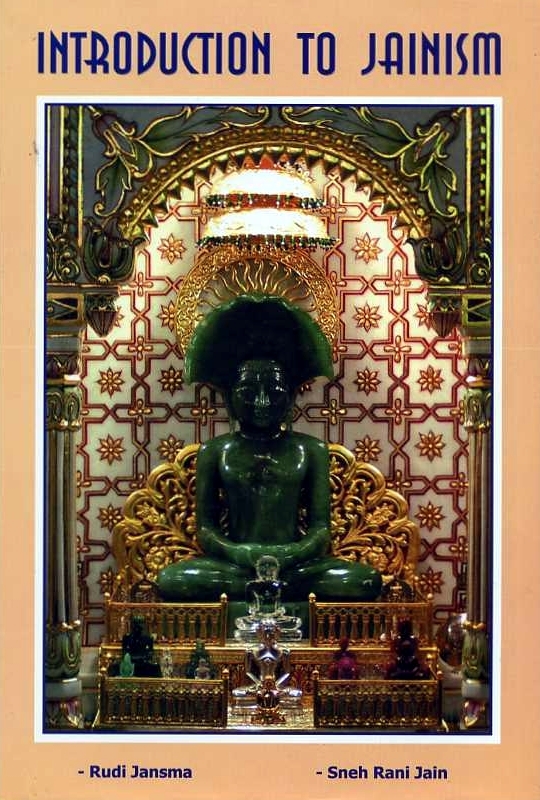Why does karma exist at all? Those who want to believe in an almighty, all-good creative God have great difficulty explaining why He did omit the creation of the causes of suffering. But even if we, like the Jains and the Buddhists, do not believe in a creative God at all, it remains a difficult question why a universe which shows so much love and compassion and beauty - we all carry these feelings in our own heart - shelters suffering. Every religion gives a central place to love and compassion. These are divine faculties. Allah is called the All-Merciful. The Tibetans pray to Chenrezig, the Compassionate Being who is the essence of all celestial Buddhas. The god of the Mayas, called the Plumed Serpent, taught his people compassion as a counterforce against religious bloodshed. We could list many other examples from sacred literature and popular beliefs. The Jains regard karma as “dust” that is attracted, which partly obscures the body-bound soul as soon as it “vibrates,” i.e. every time it has a thought, feeling or emotion. But the essence of the soul is purity and compassion. How can obscuring thoughts ever arise from such a soul? “Karma is both merciful and just. Mercy and (universal) justice are only opposite poles of a single whole; and mercy without justice is not possible in the operations of karma,” says modern theosophical literature.
But what is justice? The law of karma means that no event can take place without a cause, and that unharmonious causes lead to unpleasant results. But is it a punishment? Certainly punishments designed by human beings, either out of pure revenge or as the formalized justice of our legal system, can hardly be regarded as divine. All religions teach compassion and forgivingness, but our legal system in many cases remains unresponsive, unless the hardships inflicted on those convicted are meant to better their inner being, to promote inner growth so they may reach a stage where they will never commit the crime again - not out of fear of legal punishment, but from awakened insight. Such is the way divine justice works: it always seeks the best for the soul, the part of us which does not perish at death but continues to grow incarnation after incarnation, each time facing the effects of previous causes.
Though karma often does not appear merciful to us, it is the most compassionate and effective way to restore balance and teach the soul. Disease is one of the strongest motivations to begin asking questions about the deeper meaning of life. In our suffering we can sometimes experience that there exist deeper layers of happiness than what we thus far had called “happy.” However painful to the individual, karma is the greatest aid in clearing the way for the self-directed evolution which leads to the open spaces of freedom, and finally makes of man a god. Man has made mistakes because he has not always followed the highest voice within him, thus causing suffering to others and to himself. But he has never been left without sufficient light to show the way: there is the voice of conscience; there are the results of right and wrong action as lessons for the future; there is mind to interpret these, and free will to choose.
Karma is too often emphasized as something ‘‘bad,’’ but even when unpleasant circumstances occur, we owe the fact that we are still happy and healthy in many other respects to karma as well. Despite misfortune, we may simultaneously have much good fortune which is the fruit of what we ourselves have sown as well.
Good circumstances will automatically appear when one succeeds in expressing the essential noble qualities of the soul in thought and in action. No more than that is needed. The Jain teachings point the way to how one can finally completely get rid of all karmas. But does that mean that we also have to abandon sowing pleasant karmas and avoid a happy future? Can’t we throw away evil and the irritations of life and keep the good and pleasant things? Jainism as well as Buddhism teaches us that what we usually call happiness is in fact but a form of suffering. Because all happiness is fragile, transient - at some point it will end. Moreover such happiness is never experienced without a tinge of sorrow, without fear - even if such feelings may temporarily be pushed into the background. A drug addict who has just taken his fix can feel very happy, ecstatic even, but someone who looks at it from the outside feels pity for him, seeing that his happiness is in fact deep suffering, shadowed with tensions.
Real happiness or bliss knows no opposite. It is a universal state of purity and omniscience - maybe even forgetfulness about the existence of suffering. Viewed from that level, all worldly joy is nothing but deep suffering. Mystics speak about this state as “something” that can not be expressed in words, that transcends all worlds of good and bad, joy and dismay. In deep spiritual affection to a guru or even a statue, a devotee may feel or be deeply absorbed in some of that divine happiness. It is of an entirely different nature than mundane, personal love.
There is no revengeful God or Devil in heaven, hell, or wherever who rises above the karmic law, and makes us suffer according to his will. There may be, as taught by Jainism, many entities in the invisible worlds than inflict pain and suffering on humans and others, and there are also those who are helpful, or which can warn against danger even before it is visible to the human eye, but they can not act outside the karmic framework. Nor is there a forgiving God who takes the sins we have committed away from us, precisely because even our faults and failures will, even though we have to face their painful consequences, eventually result in what is best for us as a living soul. Such ideas about godhead are utterly contradictory of the Jain teachings. The wisest attitude and the best thing we can do for our soul is to evoke within ourselves a feeling of gratitude and accept whatever our karma presents to us with equanimity and well-grounded hope. ‘‘Bless the karmic stimulus; be not afraid of it. Look to the essential divinity within. Remember that everything that happens is transient, and that you can learn from everything, and in learning you will grow - grow great, and from greatness pass into a larger sphere of greatness’’ says a modern theosophical writer.[32]
 Dr. Sneh Rani Jain
Dr. Sneh Rani Jain
 Publisher:
Publisher: